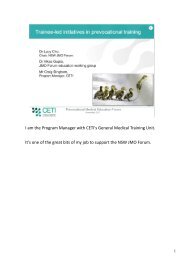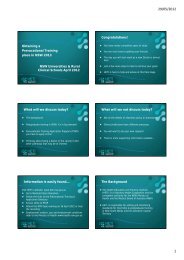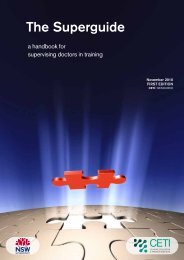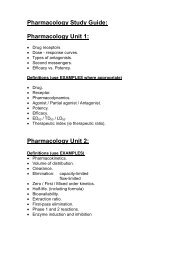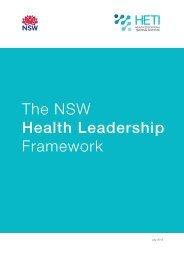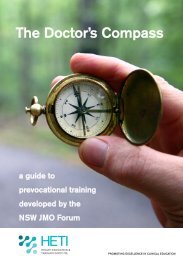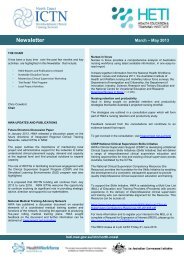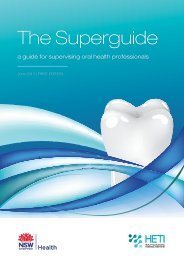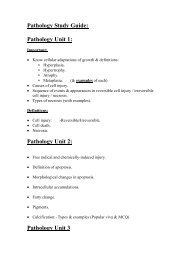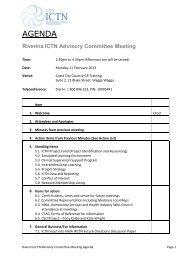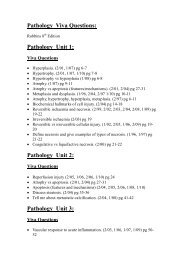a handbook for supervising allied health professionals - HETI - NSW ...
a handbook for supervising allied health professionals - HETI - NSW ...
a handbook for supervising allied health professionals - HETI - NSW ...
Create successful ePaper yourself
Turn your PDF publications into a flip-book with our unique Google optimized e-Paper software.
THE SUPERGUIDE<br />
Teaching remotely<br />
Many clinical consultations and episodes of supervision take place over the phone, via<br />
email or video conferencing. Despite the distance, the supervisor’s advocacy <strong>for</strong> patient<br />
safety is no less than when present at the point of care. There is a tendency to abbreviate<br />
phone calls to a minimum of in<strong>for</strong>mation exchange, but the phone can be used to put<br />
the supervisor “virtually there” with the clinician during clinical encounters. Because the<br />
supervisor cannot see or touch the patient, there is an increased focus on the clinician’s<br />
communication skills.<br />
52<br />
Particularly in non-urgent contexts, the supervisor can work with the clinician to develop<br />
his/her phone communication technique:<br />
• Practice the ISBAR communication framework (see page 49)<br />
• Provide feedback to the clinician on the selection and presentation of clinical<br />
in<strong>for</strong>mation<br />
• Practice the “report-back” technique of confirming the content of a phone<br />
communication with the clinician (repeat the essence of what you have been told<br />
and repeat the decisions <strong>for</strong> action that have been made).<br />
Fear of difficult conversations with supervisors can discourage supervisees from making<br />
a phone call at the time when it is most needed. Supervisors need to support staff<br />
members’ use of the phone/teleconferencing and paging system and develop their skills in<br />
presenting in<strong>for</strong>mation succinctly and accurately to elicit the support and advice required.<br />
Other clinical teaching opportunities<br />
Critical responses<br />
When there is a critical incident, and there is no time <strong>for</strong> explanations, it is important to<br />
make time to review the event afterwards.<br />
After-hours episodes<br />
A lot of clinical activity occurs “after hours,” which includes work conducted after<br />
business hours and on weekends. For some <strong>allied</strong> <strong>health</strong> staff, their experience is drawn<br />
from episodes of care provided “after hours” on an episodic or on-call basis.<br />
Supervision and training needs after hours are important and require monitoring and<br />
support by senior clinicians. After-hours clinical situations can be a source of anxiety <strong>for</strong><br />
clinicians, as the patients and their conditions may be unfamiliar.<br />
The supervisor must be alert to this unfamiliarity and provide a supportive environment.<br />
Staff working after hours should have access to senior staff supervision as required.<br />
Providing support to reason through a clinical problem together can enhance patient<br />
safety and the person’s ability to manage independently in future.



